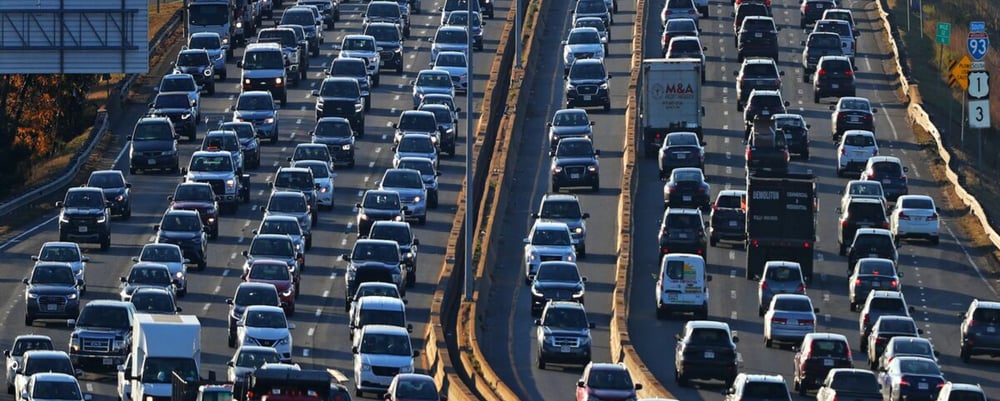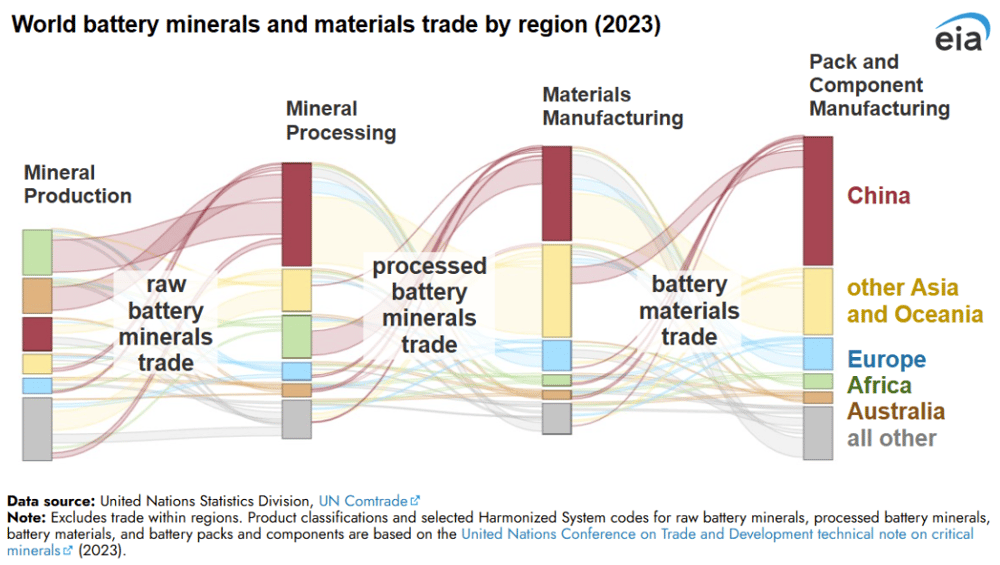For the past several weeks, we’ve been working hard on a campaign to protect key regulations, called Advanced Clean Cars II (ACCII), which would have steadily increased the supply of electric vehicles (EVs) available to drivers in Massachusetts and Rhode Island, such that 100% of new car sales would have to be electric by 2035. These regulations were key to both Massachusetts’ and Rhode Island’s climate plans. Now, they’re off the table.
What happened?
ACCII, and similar regulations concerning medium- and heavy-duty vehicles, have been targeted by the automotive and fossil fuel lobbies on both the national and state levels.
This week, two things happened:
1. Thursday, Congress voted to rescind the waivers that the Environmental Protection Agency had granted during the Biden administration that allowed states to implement these standards.
The House voted to revoke the waivers a couple of weeks ago; on Thursday, the Senate joined them. They did so by misusing the authority granted to Congress under the Congressional Review Act (CRA).
The CRA allows Congress to overturn certain types of rules issued by executive agencies. The Government Accountability Office and the Senate Parliamentarian have both found the waivers granted by the EPA to NOT be the types of rules that are subject to the CRA, but Congress went ahead and voted anyway. This decision flies in the face of 50 years of precedent, dating all the way back to the Clean Air Act. Inappropriately using the CRA to revoke these waivers not only sets us back significantly in the fight against climate change, but also sets a dangerous precedent for Congress to roll back other agency actions that are not in the purview of the CRA. (To learn more about all of this, we recommend this article from the Guardian). We should note that Massachusetts’ and Rhode Island’s federal delegation, in particular Senator Whitehouse and Senator Markey, led the opposition to this effort, and we thank them for that.
Governor Newsom has said that California will fight this out in the courts, challenging the improper use of the CRA, but that will take years. We hope Massachusetts and Rhode Island will join in that lawsuit when the time comes. In the meantime, states are not able to implement ACCII or two other regulations on medium- and heavy-duty vehicles, Advanced Clean Trucks (ACT) and Heavy-Duty Omnibus Regulations (HDO).

2. Friday, Governor Healey, along with the governors of New York and California, announced a two-year period of “enforcement discretion” on ACCII.
Today, the Massachusetts Department of Environmental Protection (MassDEP) updated its website and announced a two-year pause on implementing ACCII. Basically, that means they won’t take any action against manufacturers who do not meet the ACCII requirements for model years 2026 and 2027. The MassDEP webpage explicitly states “to qualify for this exercise of enforcement discretion, manufacturers shall not withhold internal combustion vehicles from car and truck dealerships seeking those vehicles.” Basically, this means that automakers and dealers cannot artificially restrict supply. (Which, we might add, ACCII never required them to do in the first place.)
Governor Healey’s announcement says the pause will give automakers “more runway” to invest in EV supply chains; ACCII was designed to create a framework to encourage that investment. Without the structured transition timeline of ACCII, and with the federal rollbacks, it is difficult to imagine automakers using this pause to ramp up their EV investments. Though the Governor's statement hints at upcoming announcements regarding funding for EV charging programs, this double-whammy following the federal news is disappointing and dispiriting.
Pretty much simultaneously, Massachusetts and Rhode Island joined nine other states in an announcement of the creation of an Affordable Clean Cars Coalition. Though the announcement signals the states’ commitment to advancing EV adoption, quite frankly, it does little to mitigate the blow of losing ACCII.
What now?
Transportation is the largest sector source of greenhouse gas (GHG) emissions in both Massachusetts and Rhode Island, and both states relied on ACCII in their climate plans to reach the necessary economy-wide GHG emissions by 2030: 50% in Massachusetts and 45% in Rhode Island. Without ACCII, both states will need to be creative and turn to other solutions. In particular, we think the build-out of charging infrastructure, rate design (how we charge for electricity, particularly time-varying rates), and continued state incentives for EV purchases will be critical. More on that in the coming weeks.

What about the tax bill?
Federally, the vote on the CRA is not the only important news regarding EVs. The tax bill passed by the House on Thursday includes many measures that threaten a swift transition to EVs. This New York Times article has a good summary. The tax bill would:
- End the federal tax credit for the purchase of new and used EVs (including commercial vehicles) and the tax credit for the installation of EV chargers after December 31, 2025;
- End subsidies for domestic battery manufacturing starting in 2029;
- Create a new annual $250 fee for owners of electric cars and trucks starting October 2026, nominally to make up for lost gas tax revenue, but in fact disproportionately high and punitive;
- Undo the current and future Corporate Average Fuel Standards (CAFE) for current and future model years and other vehicle efficiency standards
The bill still needs to pass the Senate and be signed into law by President Trump. We know that, if it does, EV prices will increase. A study by Princeton University has estimated that repealing the EV tax credit will result in 8 million fewer EVs in the US by 2030, and that by 2030, only 24% of new car sales will be electric instead of the 40% we could have expected otherwise.
This matters: To reach net-zero emissions by 2050, we need to have the last new gas car sold in 2035.
In addition, repealing the tax credit for domestic battery manufacturing puts ongoing projects and jobs at risk. It will continue to widen the gap in expertise and manufacturing capabilities between the United States and the rest of the world, particularly China. On battery manufacturing in particular, the US is so far behind that it falls into the “other” category in the graph below shared by the Energy Information Administration just this week.

Why does this all matter?
With the removal of ACCII, and even more so if the current House tax bill passes and gets signed into law by the President, we will see the prices of EVs increase and EV adoption slow. As a result, we’ll see higher GHG emissions, as well as more emissions of the type that harm human health. That means more asthma attacks, more heart and lung disease, more catastrophic storms and floods and droughts. All of those impacts will be felt first and worst by the most vulnerable among us, particularly the low-income communities and communities of color that are closest to our highways and ports.
Thank you for fighting with us.
We testified in support of ACCII way back when Massachusetts and Rhode Island adopted it. In the past couple of weeks, we issued a critical action alert encouraging folks to call their Governors in support of ACCII, held a webinar on the benefits and feasibility of ACCII, testified in opposition to state-level bills that would have delayed or weakened ACCII, and called out the automotive industry for the disinformation they’re spreading about the rules. We submitted a sign-on letter with 70 organizations to Governor Healey, worked with partner organizations to activate our members, and talked to the press. Over 50 of our members and blog readers like you called or emailed Governor Healey. Thank you for all the work you did to protect clean air and a livable climate by joining us. We’ll keep working to speed the transition despite this news, and we hope you’ll keep joining us. In another blog we posted today, perseverance and solidarity are critical at this time.



Comments